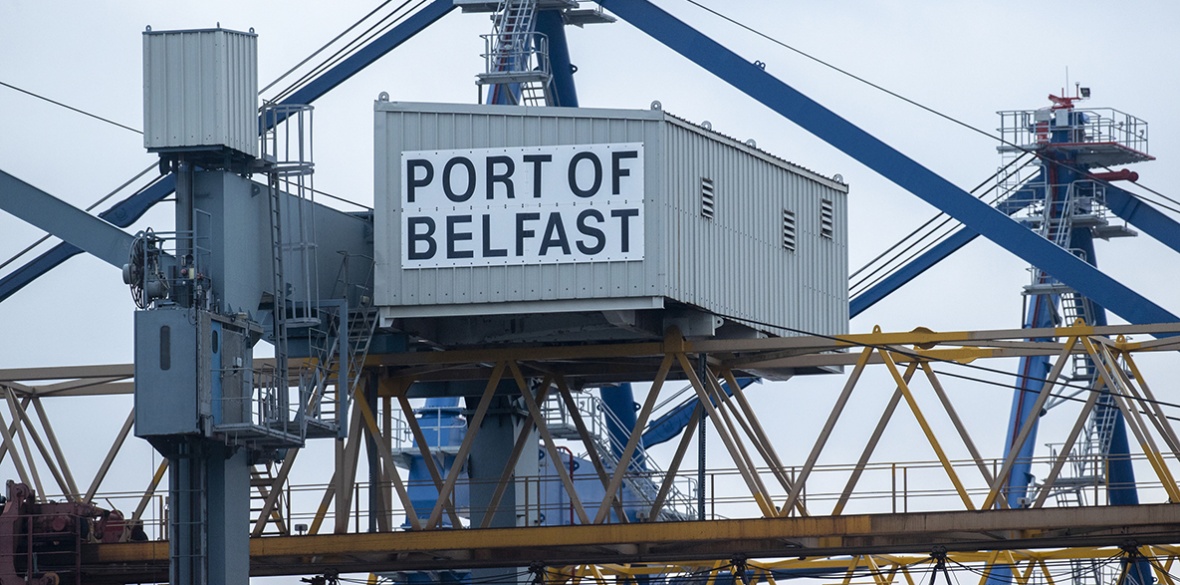FOR all the huffing, puffing and hot air accompanying UK-EU negotiations over the Northern Ireland Protocol to the 2020 Withdrawal Agreement, one fundamental fact should not be overlooked.
This is that both sides are seeking a settlement which, in the circumstances, best suits the interests of monopoly capital in Britain and the European Union.
The interests of the people of Ireland, north and south, unionist and nationalist, Catholic and Protestant, are not uppermost in the minds of Britain’s Lord Frost and his EU Commission counterparts.
Neither the British state nor the European Union are above endangering the peace by engaging in a little brinkmanship.
During the EU-UK withdrawal negotiations, prominent EU politicians and bureaucrats hinted that any failure to agree arrangements that respected EU neoliberal capitalist rules by — in reality — keeping Northern Ireland within the European Single Market could force the EU to impose north-south border controls.
This kind of irresponsible and dangerous game-playing did not go down well in Dublin, while diehard Remainers in Britain accused the Tory government of undermining the Good Friday Agreement and peace in Northern Ireland ... by failing to prevent a “hard border” there.
Eventually, a compromise deal was struck which shifted the commercial border between the UK and the EU into the Irish Sea, turning it into a border between Britain and Northern Ireland, thereby upsetting the Unionists.
Keen to keep the previously pro-Brexit Democratic Unionist Party on board, the British government now wants to renegotiate the Northern Ireland Protocol, first, to remove or at least minimise the role of the EU Court of Justice (ECJ) in deciding whether British exports to the North comply with EU standards.
Second, the Johnson regime wants to make the Irish Sea border appear to disappear, but without creating a destabilising “hard border” across the island of Ireland.
To strengthen his hand, Britain’s chief negotiator Lord Frost has visited Northern Ireland to meet unionist parties and the self-styled Loyalist Community Council which is mainly a front for paramilitaries.
He then proclaimed that the protocol could “provoke violence” if it is not radically changed. The threat of unionist violence has always a been a useful tool of the British ruling class when pursuing its imperialist interests in Ireland.
Yet the EU is unlikely to abandon any role for the ECJ in future arrangements. The court plays a central role in enforcing the pro-big business, pro-market, anti-worker rules that govern the EU, bringing as they do job insecurity, lower pay, lower pensions and privatisation to the workers and peoples of Ireland and other EU countries.
Moreover, the EU has bigger fish to fry than the Northern Ireland Protocol. Its drive to consolidate constitutional, economic and financial power at the centre, where the French and German ruling classes can exercise more control, is coming up against the desire of some EU member states to exercise national sovereignty — albeit in Poland and Hungary for reactionary purposes.
The enthusiasm of Commission president Ursula von der Leyen and French President Emmanuel Macron to develop the EU’s military dimension beyond US-Nato control is likewise a source of growing tension.
In Britain, Johnson has to satisfy the interests of big business and the City, while also appearing to keep his pledges to “level up” economic and social conditions in the north of England. And then there’s Scotland.
The Northern Ireland Protocol will be reinterpreted if not rewritten. “Light-touch” regulation of imports from Britain into Northern Ireland will be the order of the day, as the ECJ recedes into the background without vanishing altogether.
The whole episode only underlines the logic of making progress, through peaceful persuasion and incentives, towards a reunified Ireland. The Irish people can then decide, together, whether they wish to be in or out of the EU.










